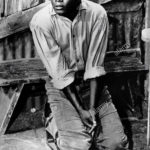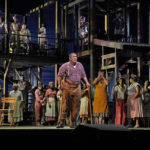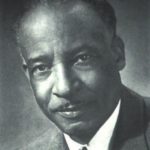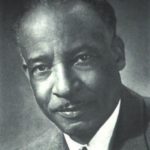Kevin Deas, the exceptional bass-baritone who is the anonymous “Porgy” of my previous blog, has written to me at greater length about singing the part – and the importance of the view “from below.” He says: “Being on my knees for my first staged Porgy was revelatory. Not only was it the first time that I’d sung the complete role, it was that perspective that was, in … [Read more...] about Is Porgy a “Stereotype”? — Take Three
Is Porgy a “Stereotype”? — Take Two
Of the interesting emails I received in response to my American Scholar review of Porgy and Bess, the most informative was from a singer with considerable experience doing Porgy on stage. He wrote: “As challenging as it was for me to sing most of Porgy on a cart (the rest of the time I was on my knees), there is no substitute for singing and viewing the world from that … [Read more...] about Is Porgy a “Stereotype”? — Take Two
Why “Porgy and Bess” and the Met Need One Another
To read my review of the Met’s new "Porgy and Bess," just posted online by "The American Scholar," click here. It begins: That the Metropolitan Opera has opened its season with a fresh production of George Gershwin’s Porgy and Bess is cause for celebration. The Met came late to black America when in 1955 it engaged Marian Anderson to sing Verdi—she was already 57 years … [Read more...] about Why “Porgy and Bess” and the Met Need One Another
Why Did American Classical Music “Stay White” — Take Two
Picking up on my American Scholar piece, Tom Huizenga of National Public Radio interviewed me about the fate of black classical music – and here is his interview. Our conversation was wide-reaching, and ultimately led to this exchange: Huizenga: Near the end of your essay, you write: "Might American classical music have canonized, in parallel with jazz, an 'American … [Read more...] about Why Did American Classical Music “Stay White” — Take Two
Why Did American Classical Music “Stay White”?
In 1893 Antonin Dvorak, teaching in New York City, predicted that a “great and noble school” of American classical music would arise from America’s “Negro melodies.” Dvorak’s prophecy was instantly controversial and influential. But the black musical motherlode migrated to popular genres known throughout the world. American classical music stayed white. The reasons are both … [Read more...] about Why Did American Classical Music “Stay White”?





